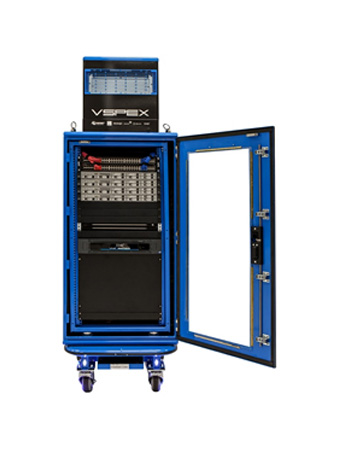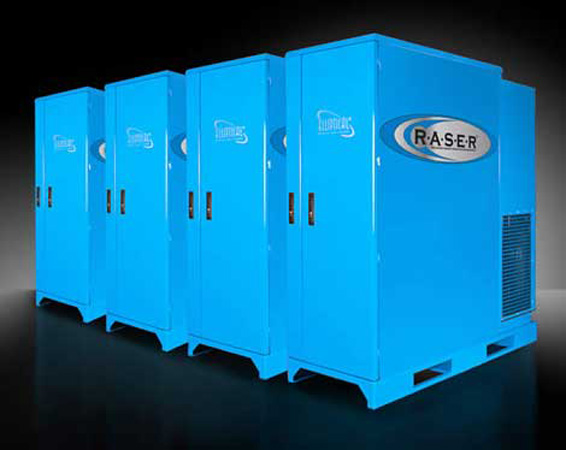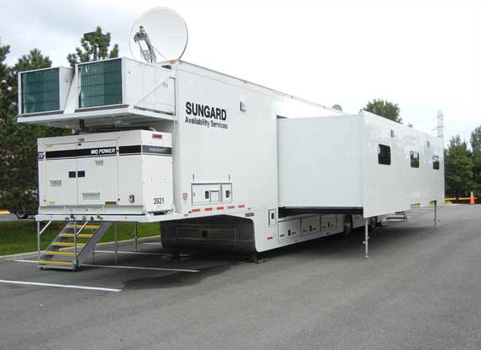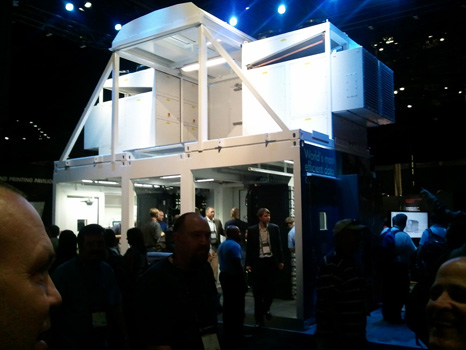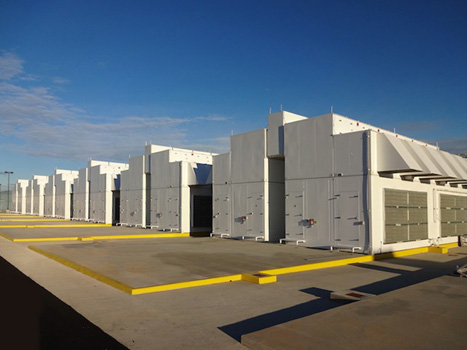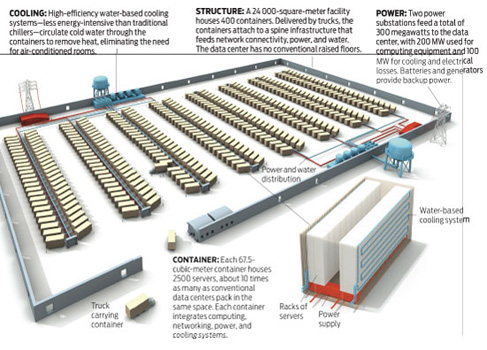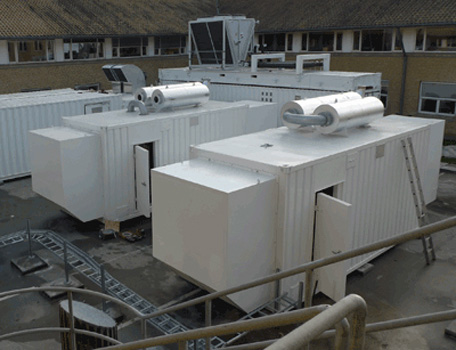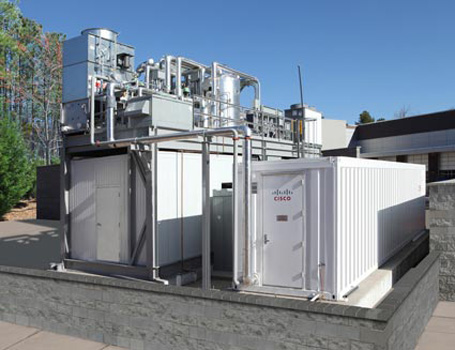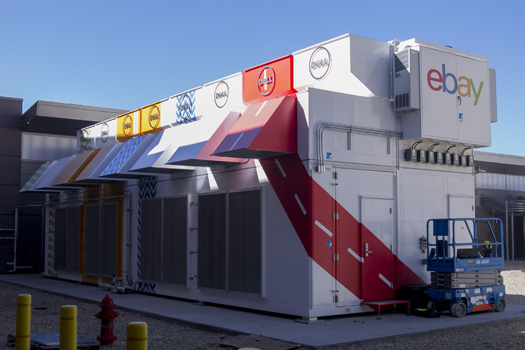Other projects that seem worth mentioning are these mini mobile, “all in one” modular units that look very infrastructural. The Mobile Data Center Solution by Avnet was launched in 2013, the C3 – S.P.E.A.R. by Eliptical Mobile Solution too (which seems to serve as the base for the Avnet one btw).
The redundancy
Certainly another key conceptual element of cloud computing. At least on the infrastructural side. A highly secured (yet paranoid) approach of hardware and software.
How do you stack your rack?
The rack unit: U
The 19 inches rack
The 19″ rack as a long story and like most “normalized” artifacts, some of its dimensions are inherited by past uses/components (telephony?), some of which are not used anymore.
The 19″ rack is globally used as a standardized server enclosure (or computer cabinet) in data centers. Build in steel and usually heavy, it is nonetheless designed to be mobile (mounted on wheels and easily packable on pallet and/or within containers for transportation). This massive use leads to the common esthetic of the data center, with straight lines of cabinets containing multiple servers. A 19″ rack usually do the same thing at a very small size than a full data center: it physically protects servers, organizes their dispatching in a very rational way and control air flows & climate/temperature.
We cannot speak about servers cabinet without mentioning the other normative unit that structure them: “U“. A “U” is a rack unit that describes the height of the equipments within the rack.
The mobile & expandable data center: containers and other ideas
As we were speculating in our I&IC – Preliminary intentions about a very versatile/mobile and distributed versions of the cloud infrastructure (datacenters), almost a physical bittorrent so to say, we are interested into the existing versions of mobile data centers.
The Uptime Institute. Tier certifications
Founded in 1993 by Kenneth G. Brill, the Uptime Institute was acquired by The 451 Group[6] (named after the book Fahrenheit 451 by Ray Bradbury) in 2009. Since then, the Uptime Institute has been an independent division of The 451 Group[7] which is headquartered in New York with offices in locations including San Francisco, Washington DC, London, Boston, Seattle, Denver, São Paulo, Dubai, and Singapore. The 451 Group also owns 451 Research, a technology-industry syndicated research and data firm.
Wikipedia (2014)
… “named after the book Fahrenheit 451″ … no need to invent it!

